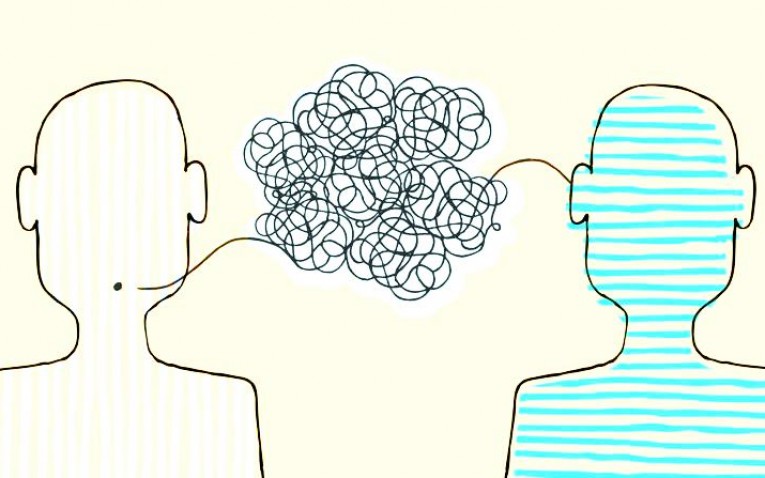If you’ve ever had an argument with a friend, your significant other or your relative- one of you might have said this at some point “you’re not even actually listening to me” or through the argument, one of you might have not “felt heard”.
Listening is an activity where you receive information through sounds. You might listen to a lot of sounds when you’re having a conversation with your friend- the phone buzzing, the music, other people talking, etc. In a situation like this, you might think you are hearing them out, but there is a high chance you will not be able to retain or understand the information they gave you in the near future.
Psychologists and other researchers think that when you want to fully understand and respond to what your friend is saying, the skill required is called active listening.
Active listening is an activity where your full attention is on what is being said, with no distractions. A lot of verbal and non-verbal cues are included under this skill. The nonverbal aspect includes the person’s posture, eye contact, movements and smile. On the other hand, the verbal aspect includes remembering, questioning, reflecting, clarifying and summarizing the information given to us.
Active Listening was first introduced by Carl Rogers and Richard Farson who believed that it could help bring positive changes in the clients in psychotherapy. They called it “empathic listening”. Carl Rogers was also the founder of the Humanistic Approach of Psychotherapy that focused mainly on understanding oneself. He believed that people should not be judged and therefore focused on listening to clients’ problems and reflecting it back to them, unbiased. According to Roger and Farson’s essay: ‘Active Listening’, “Listening brings about changes in people’s attitudes toward themselves and others; it also brings about changes in their basic values and personal philosophy. People who have been listened to in this new and special way become more emotionally mature, more open to their experiences, less defensive, more democratic, and less authoritarian.”
So, how does one listen “more actively”?
First, you’d start by showing more interest in what your friend/relative/colleague is saying. This is usually done with the help of non-verbal cues. For example, putting your phone face down will help your friend to talk more comfortably because now he knows you will not be distracted by your phone anymore and you will pay attention to them.
Or for example, saying “hmm”, “yes”, or smiling after some sentences so that he knows you are still listening to him. Another important cue is eye contact. Looking directly at the person makes them confident that what’s being said is being heard.
The most important aspect in active listening is refraining from judgement. Judging the person will not let him/her talk more openly about the problem, instead, it could also lead to more insecurities and problems. To listen and understand the whole problem before coming to a conclusion is very important. This should help in building trust and showing empathy towards the others’ problem. Refraining from judgement and instant conclusions will build what Roger’s called “unconditional positive regard” in the relationship. It means that whatever is experienced is accepted as is, without any biases.
Asking questions, clarifying something that is misunderstood and reflecting what’s being said is also an important part of active listening. For example, if you feel your friend has more to tell, but looks stressed and doesn’t seem to say much, you’d ask “So, what caused the fight between you and her?” Asking an open-ended question would allow your friend to think clearly about it and allow him to talk about it too. Paraphrasing and summarizing the issue also helps to look at it from a macro-level, giving a better perspective.
Another way of avoiding fast judgement and misunderstandings is by clarifying the doubts the listener has. If your friend is saying something you don’t comprehend, you would ask, “Sorry to interfere, but what do you mean by…” or “so what you’re trying to say is…”
Does active listening work?
For jobs that require maximum communication such as psychologists, counsellors, doctors, teachers, salespeople- active listening is a skill that is usually needed. However, that does not mean that other people cannot acquire it. Active listening helps inter-relationship communication, it allows us to understand each other and ourselves better. In the professional field, it increases teamwork, and is an important skill for a leader of any group to have. And all in all, it helps us understand and remember more information in the future.

